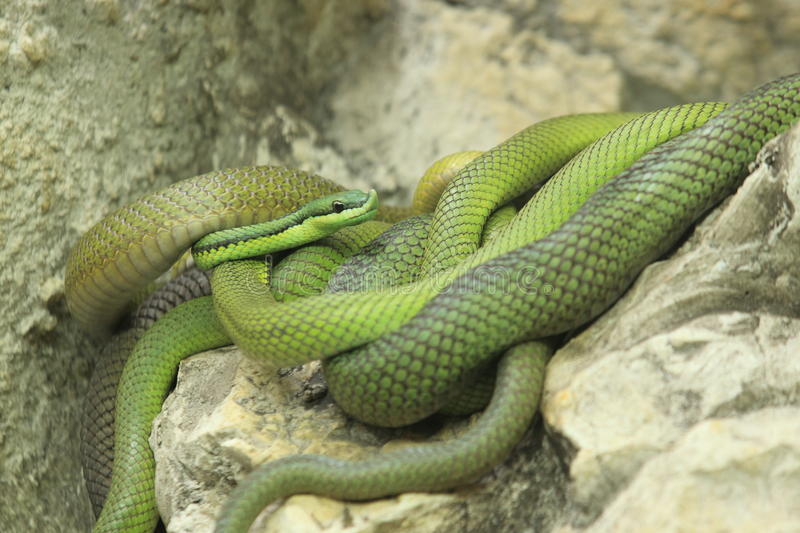ANIMAL: Baron’s Green Racer Philodryas baroni Type of Animal: Colubrid Habitat: Forests, savanna woodland, savanna Location(s): Bolivia, Paraguay, N Argentina Appearance: Green slender snake w/ small narrow elongated head & nasal protuberance (prominent in both sexes but more so in males), some specimens bluish/brownish, many snakes have black longitudinal stripes on back/sides, ventral area under black lateral lines white/yellowish-white, sometimes w/ green/blue shade, long tail Food/Diet: Small mammals, lizards, amphibians Status in Wild: Stable Conservation: Breeding in zoos, wildlife centers, & herpetoculture Lifestyle: Solitary or groups of 3-5 snakes Additional Info: Called: Male Female Young: Snakelet Group: Knot Weight: Male: 9.66 oz Female: 12.7-13.75 oz Young: 0.7 oz Gestation: 3 months Life Span: 10-20 years Body Length: Male: 4.92 ft Female: 5.91 ft Young: 2.5 ft Tail Length: Male: 1.476 ft Female: 1.773 ft Active during the day (diurnal). These snakes are semiarboreal. These snakes rear-fanged venomous, w/ many bites being dry bites w/ no venom injected due to having to chew venom into victim. Venomous bites can cause pain, edema, swelling, local hemorrhaging, & local lesions. Venom moderate. Females lay 4-20 eggs per clutch. They can breed more than once a year & year round. Also called Argentine Long Nose Snake, Point-Nosed Racer, & Argentine Long-Nosed Tree Snake. Sexually mature at 1.5-2 years old. Often rely on sight to capture prey. Like most snakes, they use tongues to sense chemicals in air. These snakes are active pursuit hunters. Coloration aids in camouflage. Largest member of Philodryas genus. Fun Fact(s): Like many snakes, they’re really good escape artists. They will emit foul-smelling substance from cloaca if threatened/frightened. They may also bite. Many individuals very mild-mannered but they can also be very nervous. Named after Manuel Baron Morlat, who collected 1st specimens of this species.
